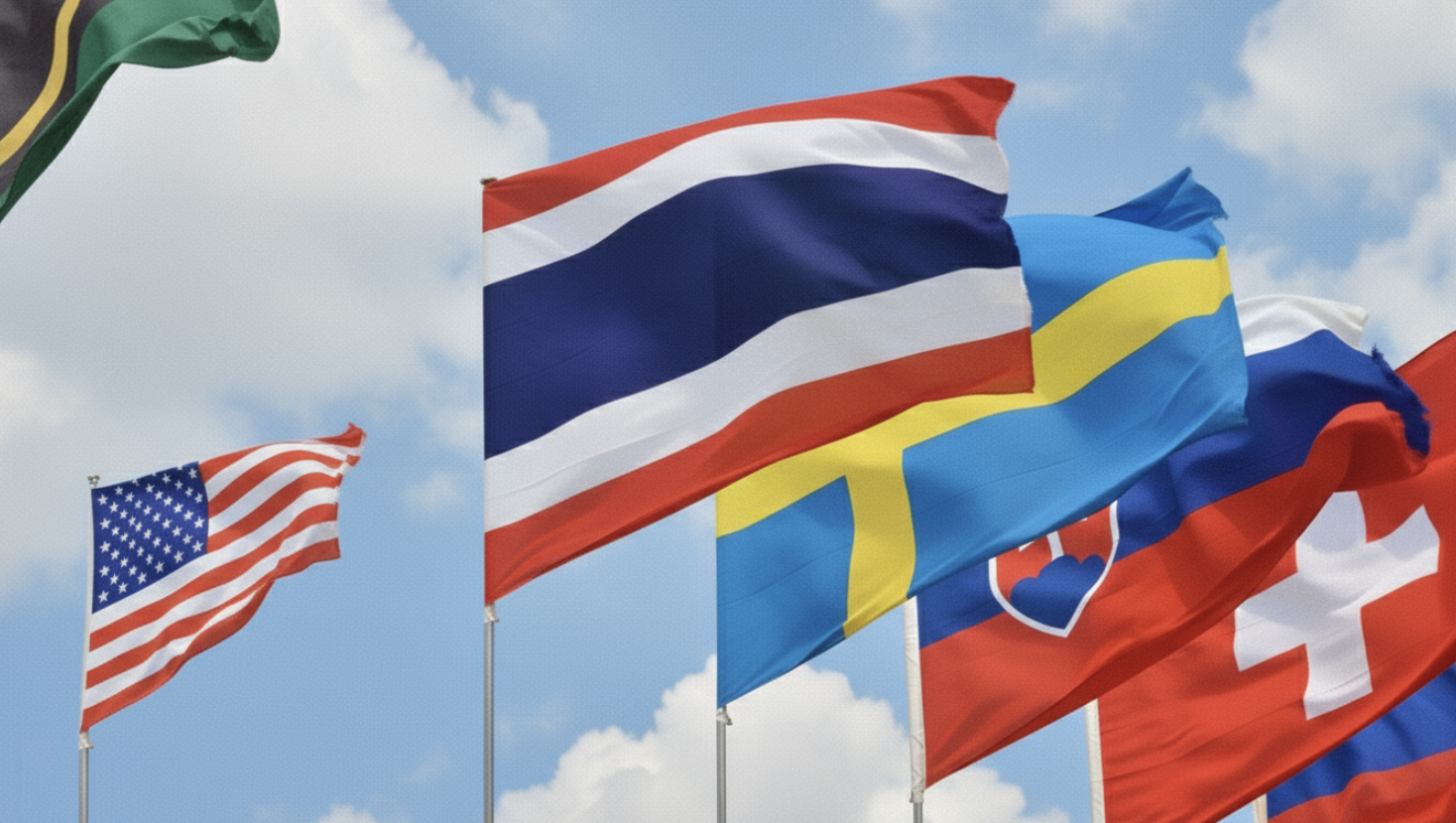

By John Perkins
I recently returned from speaking at major events in Tbilisi, Georgia, and Istanbul, Turkey, and Nashville, Tennessee. Georgia and Turkey are two nations with long histories of authoritarian rule. Georgia, once part of the Soviet Union, still fears Russian aggression. Turkey, too, has endured autocratic regimes and continues to struggle under one today. The Nashville event was a Bitcoin Summit sponsored by the Human Rights Foundation held in a city that is a cross- section of American history and politics.
The gatherings drew influential business and NGO leaders and entrepreneurs from every continent except Antarctica. The atmosphere was electric—filled with inspiring speeches and engaging conversations. Yet one theme dominated: widespread confusion and concern about the direction of US policies.
Praise for U.S. Policies
Many participants applauded America’s firm stance on reducing crime—particularly homicides and mass killings.
They praised President Trump’s attempts to negotiate a cease-fire, hostage-exchange between Israel and Hamas (these meetings occurred before the October 10 ceasefire agreement that was brokered by the US).
Some appreciated Washington’s shift away from domestic social issues, such as diversity and other so-called “woke” movements. They viewed these as distractions from more urgent global challenges like climate change, peace, malnutrition, and life-threatening diseases.
Some expressed approval for the administration’s crack-down on what they referred to as “illegal” immigration – as opposed to “legal” immigration that could help strengthen the American economy.
There was also support for US pressure on NATO members to increase defense spending. But unlike in the U.S., where this is often seen as supporting nationalism and easing America’s financial burden, participants valued it for different reasons:
1. It allows European nations to loosen their dependence on Washington.
2. It stimulates growth in Europe’s defense and high-tech industries.
3. It opens the door for European countries to pursue closer ties with China and the other
BRICS nations.
In other words, they welcomed the policy not as a sign of U.S. strength, but as a step toward diminishing America’s influence and power in Europe.
Concerns
Far more often, dismay and alarm were expressed.
The imposition of tariffs and sanctions was widely viewed as destabilizing global economies. In addition, because products made in the US – which rely heavily on inputs from tariffed countries – will be more expensive when sold overseas, these policies are likely to hurt America’s balance of payments and to accelerate China’s rise as the dominant global trading partner.
Cutbacks in foreign aid, healthcare, and social services and Washington’s growing disregard for science-based research in medicine, climate, and the environment raised similar concerns. Until now, America has been seen as a leader in many of these fields. The cutbacks weaken the US and strengthen China.
Many expressed unease at America’s slide toward authoritarianism: tightening government control over media, universities, and the legal system; efforts to undermine voting; and punitive actions against political opponents. In several conversations, President Trump was compared to Russia’s Putin, Belarus’s Lukashenko, and China’s Xi. For nations that once looked to the US as a model of democracy, this was deeply unsettling.
The U.S., long outspoken against corruption, is now increasingly cited as corrupt itself.
Attendees pointed to a president accused of exploiting his office for personal enrichment and for “shaking down” businesses—such as the Nexstar-Tegna merger and the TikTok deal.
There was also widespread condemnation of Washington’s muted response to Russia’s brutality in Ukraine.
Finally, America’s reluctance to address climate change stood out as one of the most urgent
concerns. By clinging to fossil fuels and resisting alternative energy, the U.S. is seen as ceding the defining leadership challenge of our time to China.
Shifting Global Attitudes
These conversations revealed a profound shift. Around the world, many influential figures have lost faith in America as a reliable partner and a model of justice and democracy. In the short run, political and business leaders may attempt to avoid angering Washington. But in the long run, they are increasingly convinced that the US’s influence is rapidly diminishing —growing smaller, not greater.
Where America was once regarded as imperfect yet striving toward democracy and justice, it is now met with skepticism and disappointment. The assumption that Washington cannot be trusted to honor promises or agreements has become widespread.
As a result, global influencers are quietly seeking new alliances in their own regions and with other major markets such as China, the European Union, India, and Brazil. The US once the hub of the global network—is being bypassed.
At one point, when someone mentioned the slogan “make America great again,” another scoffed: “Actually, we’re witnessing the diminishing of America.”
A Personal Reflection
As someone who has long criticized US exploitation of other nations, it may seem ironic that I find little comfort in America’s decline. But my critiques have always aimed to help Americans recognize our mistakes so we might correct them and play a more constructive role in the world.
My goal has been—and still is—for the US to lead the transition from a degenerative Death Economy to a regenerative Life Economy. Yet, based on what I heard at these three recent events, and on the evidence before us daily, I fear we are surrendering that role to China. Rather than ending centuries of colonialism, we may simply be replacing one empire with another.
The world will move on. The question is whether America will summon the courage to lead again—not through domination, but by pioneering the regenerative future humanity so urgently needs.






